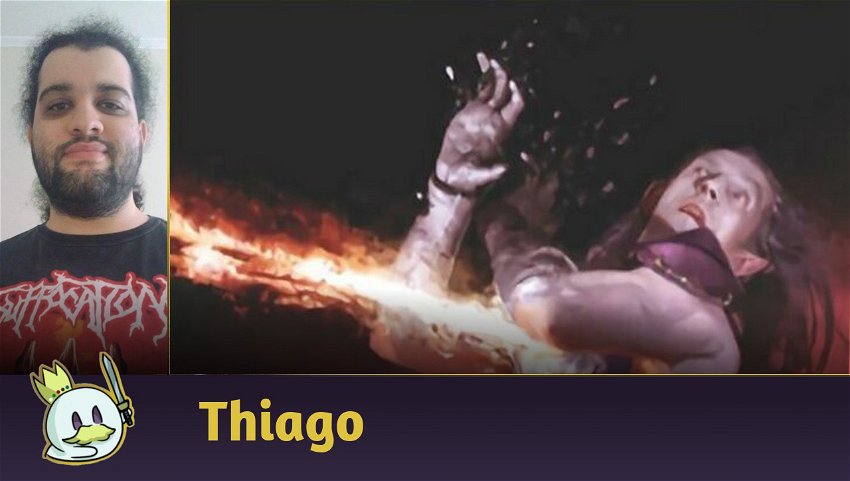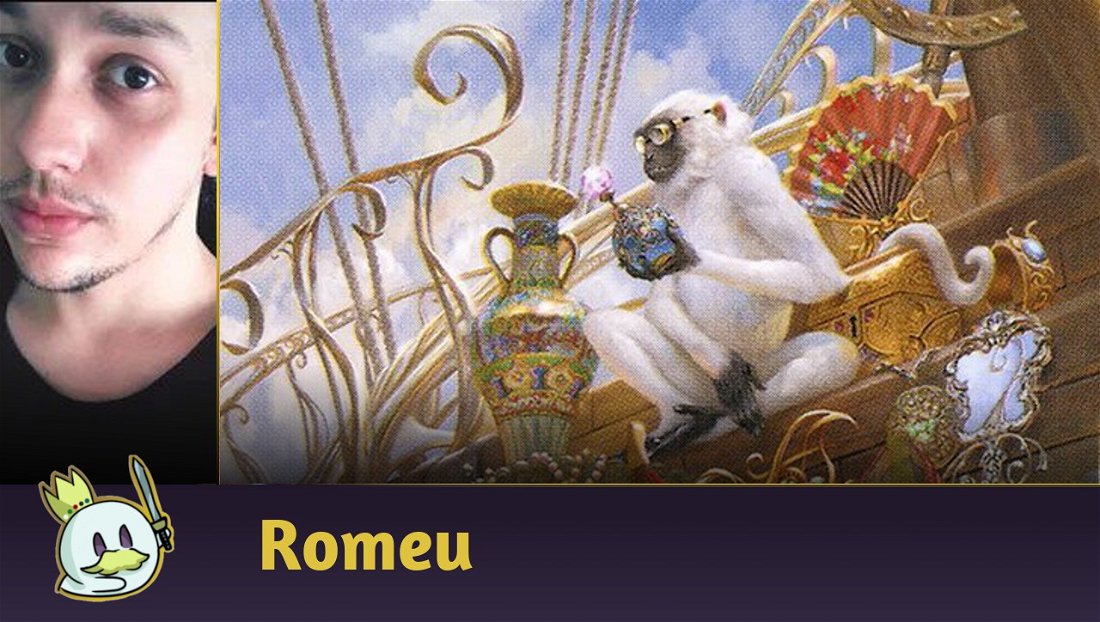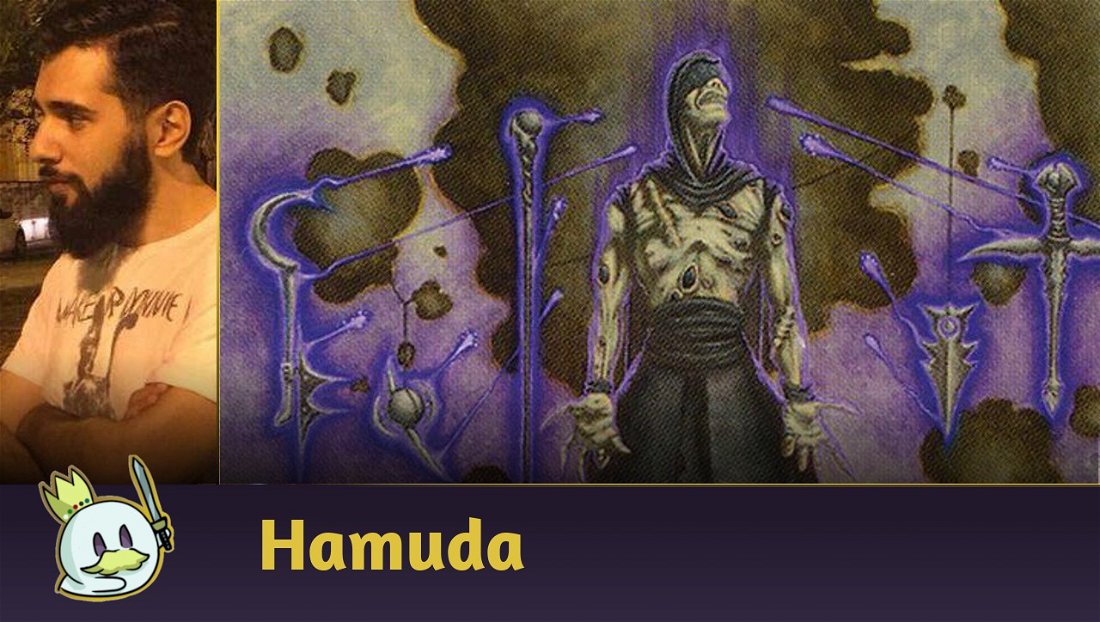Introduction
Continuing on the hype of Magic's new digital format, Alchemy, let's talk a bit about some lists that are famous in the format and have the potential to be tier decks. Most decks are modified versions of Standard lists, but with like Esika’s Chariot and Alrund’s Epiphany being rebalanced, they tend to appear less often, giving way to other new cards.
Rakdos Dragons
The first deck we're going to talk about is a Rakdos Dragons that uses Standard's dragon base with two relevant new additions: Fearsome Whelp and Town-razer Tyrant.

A two-drop is essential in this strategy to speed up the deck by reducing the cost of dragons in your hand, and the four-drop has been quite surprising, being played even in Historic. Its ability to basically disable a manland or manascrew an opponent is pretty good.
And what does the deck has black for? To have solid removals and discards against control, as well as the Historic version of the archetype.
Orzhov Clerics
The next deck has stood out in the ranked and in tournaments for being great against aggressive decks and with the potential to rush controls. The life gain subtheme is important so that Voice of the Blessed grows, and Righteous Valkyrie makes any creature larger, which difficult interactions.
The new cards, Angel of Unity and Inquisitor Captain are just insane in the deck. The first makes the creatures in your hand larger, and the second works similarly to Collected Company by putting up to a three-drop on the board for free, living up to the set's card advantage theme.

There is also an Esper version with a blue splash for Glasspool Mimic and Disdainful Stroke on the sideboard, which is interesting and works better against control.
Rakdos Vampires
The Rakdos Vampires follows the same line as the Standard list, but here we have Citystalker Connoisseur, a top-curver that serves as a discard, and Brittle Blast, the removal that is the Mono Blacks' terror for exiling creatures that would die and therefore not triggering abilities like Shambling Ghast and Eyetwitch.

Overall, it's a solid deck against aggro and has resilience with Sorin the Mirthless and the vampires that are in the Standard.
Mono Black
Perhaps the most popular archetype of the format, thanks to Sanguine Brushstroke, the card that alone allows the deck to be relevant. The new enchantment makes the sacrifice synergy much better with Blood Artist on the board, and sweepers get even better to end the match for the same reason. An enchantment that does 3-for-1 can be quite impactful, especially costing only 3 mana.

In addition, Cursebound Witch can bring up the Standard's pre-rotation banned combo of Cauldron Familiar + Witch's Oven, and we know how strong it is.
Gruul Wolves
The green decks received one of the best cards in the new set, Tenacious Pup. It's the one-drop that takes your two-drops out of the range of almost any red removal, in addition to giving trample and vigilance, and it's even a wolf to improve this Gruul deck's synergy.

Rahilda, Wanted Cutthroat is another good card that came to the archetype, but, being legendary, it turns out, not worth using many copies, I believe 2 at most. The top of the curve with Lupine Harbingers is good, but the card tends to be less relevant when cast for 4 mana.
Mono Green
As usual, Mono Green has been one of the main decks in Standard for many months, and it couldn't be different in Alchemy. The base is old-fashioned with the addition of Tenacious Pup to make the deck's curve even better with Werewolf Pack Leader coming in as a 4/4 to win the game almost every time.

Another option for the top curve is Garruk, Wrath of the Wilds which can generate card advantage by entering the battlefield, or improve your next turn with bigger creatures.
Dimir Control
Moving to the control side of the format, we have Dimir, another deck that takes advantage of Standard's card base and adds some impactful cards. Discover the Formula is, in addition to pure card advantage, a game accelerator by reducing the cost of all non-land in your hand. It combined with Lier is relentless, as the cost is reduced even when casting from the graveyard.

Another impactful card that made it to the deck is Key to the Archive, the artifact that can tutor most of the main banned cards in Historic, such as Time Warp, Lightning Bolt, Counterspell and Demonic Tutor. The most interesting thing is that, in addition to tutoring broken cards for the format, it generates 2 mana of any color combination, that is, we can choose, for example, Regrowth or Approach of the Second Sun and cast them without worrying about the mana!
From personal experience, playing a banned card that takes an extra turn is never bad, and it's even better with Lier playing another extra turn from the graveyard. An afterthought is that the artifact is good for speeding up play on manas, enabling Hullbreaker Horror two turns before or Lier + some available interaction.
Izzet Control
Not leaving Izzet out of the article, it is another archetype that follows the same idea of its Standard version with some new cards, in this case, Key to the Archive, Discover the Formula and Geistchanneler. In this deck, it's excellent for reducing the cost of Memory Deluge and Unexpected Windfall, allowing for stronger subsequent turns. Otherwise, it's more of the same, with Lier and Hullbreaker finishing the game with the help of the two main deck dragons.

The interesting thing is that tutoring Time Warp, Demonic Tutor, Regrowth among other cards generates even more value by copying them with Galvanic Iteration, that is, we can play 3 turns for 7 mana and there's no problem with that.
Esper Control
Finally, we have an Esper Control that did very well in a recent tournament. The deck centers around Lier, Disciple of the Drowned and Edgar, Charmed Groom as finishers and many interactions to hold the game. The advantage of this list over Dimir is that we close the game more easily with Edgar, as well as being a great card against aggro, and Vanishing Verse being a premium removal in the format, as almost all relevant permanents are monocolored.

In addition, we have The Celestus being a source of card advantage and life gain, often necessary, and Professor Onyx as the curve-topper that can win in a few turns due to the large number of one or two mana instants to drain 2 life.
Conclusion
That's it for today! I hope you enjoyed these Alchemy lists and that they serve as an initial step in this new format that I'm really enjoying, despite the poor economy.
Any questions, comments or feedback I'm available in the comments below.














— Comentarios 0
, Reacciones 1
Se el primero en comentar